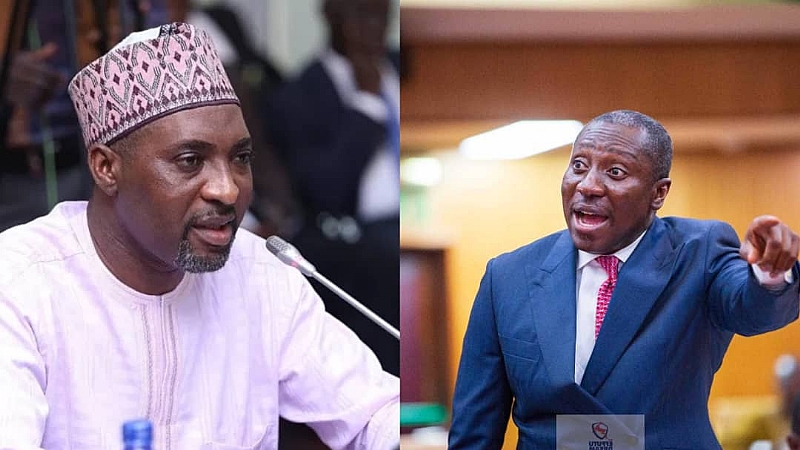Mohammed-Mubarak Muntaka, the Minister of the Interior-designate, found himself in a tense exchange with Alexander Afenyo-Markin, the Ranking Member of the Appointments Committee, during his parliamentary vetting process. The initial phase of the vetting proceeded smoothly, with Muntaka confidently addressing questions posed by committee members. However, the atmosphere shifted palpably when Afenyo-Markin began his line of inquiry, focusing on the acquisition of government lands by members of the National Democratic Congress (NDC).
Afenyo-Markin, after acknowledging Muntaka’s own legitimate acquisition of government land through proper lease procedures, posed a pointed question: was Muntaka aware of any NDC leadership figures who had similarly acquired government lands in prime residential areas such as Cantonments, Roman Ridge, Ridge, and Airport Residential Area? The question, seemingly innocuous on the surface, carried an undercurrent of implied impropriety, suggesting potential favoritism or abuse of power in the acquisition of these valuable properties.
Muntaka’s reaction was immediate and visibly tinged with annoyance. He countered Afenyo-Markin’s probe by stating that he did not pry into the private affairs of his colleagues, including their property acquisitions. He emphasized that he would not, for instance, question the chairman of the committee about the means by which he acquired his house, even if admiring the property. Muntaka’s response conveyed a sense of indignation at what he perceived as an unwarranted intrusion into the personal matters of his fellow party members. His pointed example of the committee chairman further underscored his disapproval of Afenyo-Markin’s line of questioning.
This exchange highlights the inherent tension within the vetting process, where nominees are expected to demonstrate transparency and accountability while also safeguarding their privacy and that of their associates. Afenyo-Markin’s questioning, while ostensibly aimed at uncovering potential irregularities, could be interpreted as an attempt to cast a shadow of suspicion over the NDC leadership. Muntaka’s retort, on the other hand, reflects a desire to protect his colleagues from what he deemed an unnecessary and potentially damaging inquiry. The incident illustrates the delicate balance between investigative scrutiny and respect for individual privacy that characterizes such proceedings.
The brief but pointed exchange between Muntaka and Afenyo-Markin encapsulates the broader political dynamics at play. The vetting process, while intended to assess a nominee’s suitability for office, often becomes a platform for political maneuvering and point-scoring. Afenyo-Markin’s question, by targeting land acquisition in affluent areas, played into public perceptions of political elites benefiting from their positions. Muntaka’s response, in turn, served to deflect the implied criticism and protect his party’s image.
This incident serves as a microcosm of the larger political landscape, where accusations of corruption and cronyism are frequently leveled against those in power. The exchange also underscores the challenges faced by nominees during vetting processes, where they must navigate complex political terrain while maintaining their composure and upholding the principles of transparency and accountability. The incident highlights the importance of robust vetting procedures to ensure the integrity of public office while also respecting the rights of individuals.














